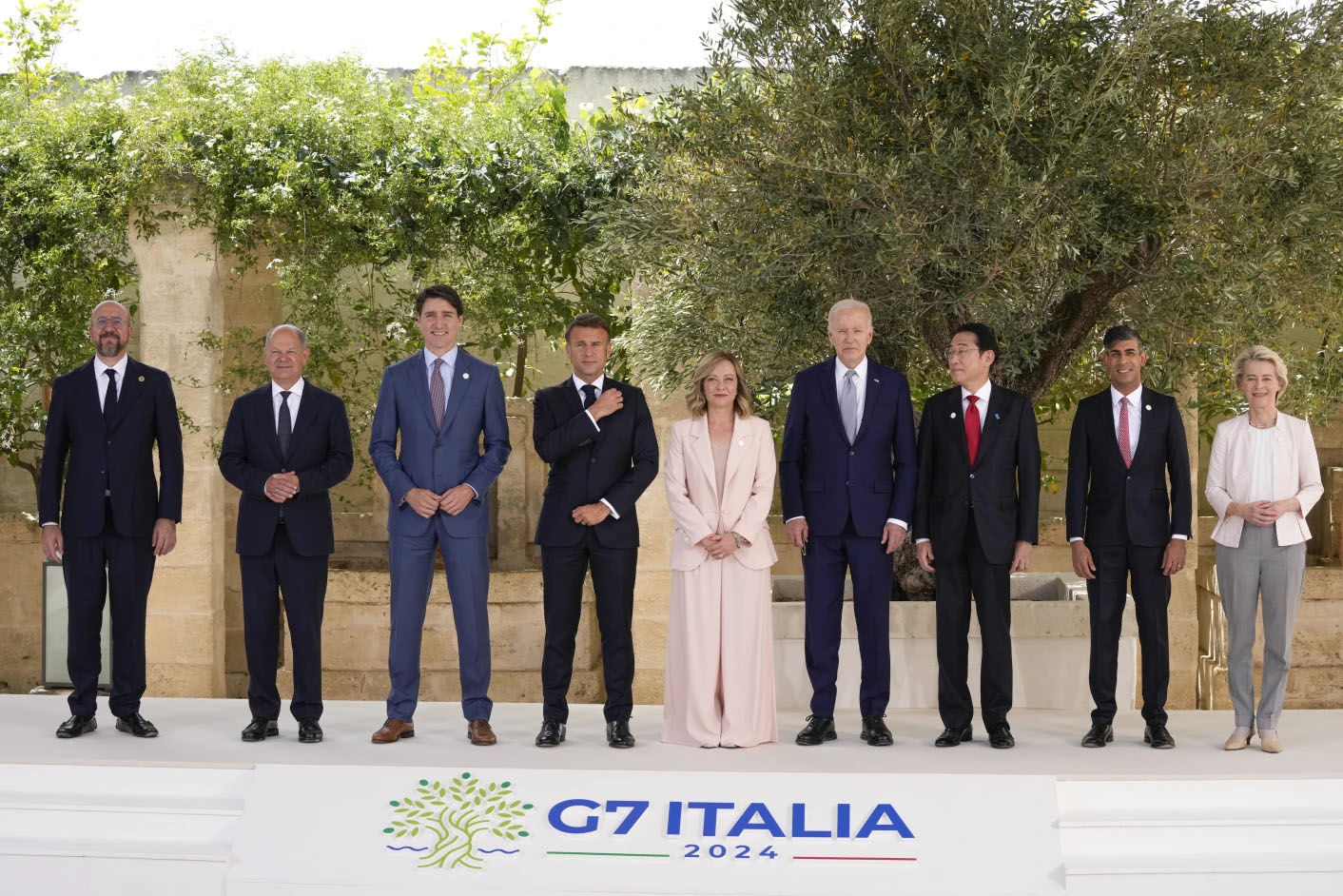
Photo Credit: Getty Images
The leaders of the Group of Seven (G7) major democracies have agreed on a plan to provide $50 billion in loans for Ukraine, using interest from Russian sovereign assets frozen after Moscow's 2022 invasion of its neighbor. This political agreement was the focal point of the opening day at the G7 summit held in southern Italy, attended for the second year by Ukrainian President Volodymyr Zelenskiy.
The G7 plan aims to use profits from around $300 billion of frozen Russian funds, primarily blocked within the European Union. The technical details of this plan will be finalized in the coming weeks, with the expectation that the new funds will reach Kyiv by the end of this year. Contributions are set to come from all G7 member states, including the United States, Canada, Britain, France, Germany, Japan, and Italy.
"This is a very clear commitment that should embolden the Ukrainians to do what they need to defend their independence and sovereignty", stated German Chancellor Olaf Scholz. U.S. President Joe Biden highlighted the significance of the frozen asset agreement, calling it a "significant outcome" and a "reminder to (Russian President Vladimir) Putin that we are not backing down".
In addition to the loan plan, President Zelenskiy signed a new long-term security accord with President Biden and a 10-year security agreement with Japan, which promised $4.5 billion in aid to Kyiv this year, emphasizing continued strong support from the West.
The G7 leaders aimed to ensure that the plan would be sustainable over multiple years, irrespective of political changes within member states. This approach addresses concerns that a shift in the U.S. administration, particularly if Republican candidate Donald Trump wins the upcoming presidential election, could affect support for Kyiv.
Russia has condemned Western attempts to utilize income from its frozen assets, labeling them as criminal. Russian foreign ministry spokeswoman Maria Zakharova warned that Moscow's response would be "very painful" for the European Union.
The G7 leaders, grappling with various domestic challenges, projected confidence on the global stage as they tackled issues like China's economic ambitions, the growth of artificial intelligence, and the ongoing turmoil in the Middle East. They expressed concerns over the Israel-Lebanon border situation and endorsed U.S. efforts to secure a ceasefire in the Gaza conflict, urging Israel to avoid a full-scale offensive in Rafah, in compliance with international law.
The leaders also voiced unanimous concerns about China's industrial overcapacity, which they believe is distorting global markets. Furthermore, they expressed a commitment to helping African nations develop their economies. Despite the projected unity, the summit's congenial atmosphere was somewhat marred by a clash between French President Emmanuel Macron and Italian Prime Minister Giorgia Meloni over references to abortion rights in the final communique.
However, all leaders were seen smiling as they greeted Meloni at the Borgo Egnazia resort. On the following day, more than a dozen additional leaders from countries including India, Brazil, Argentina, Turkey, Algeria, and Kenya are set to join the discussions.
Additionally, Pope Francis is scheduled to speak about the risks and potential of artificial intelligence. This summit marks a critical moment for the G7 leaders as they navigate complex geopolitical challenges and domestic pressures, seeking to maintain unity and
effectiveness on the world stage.
















